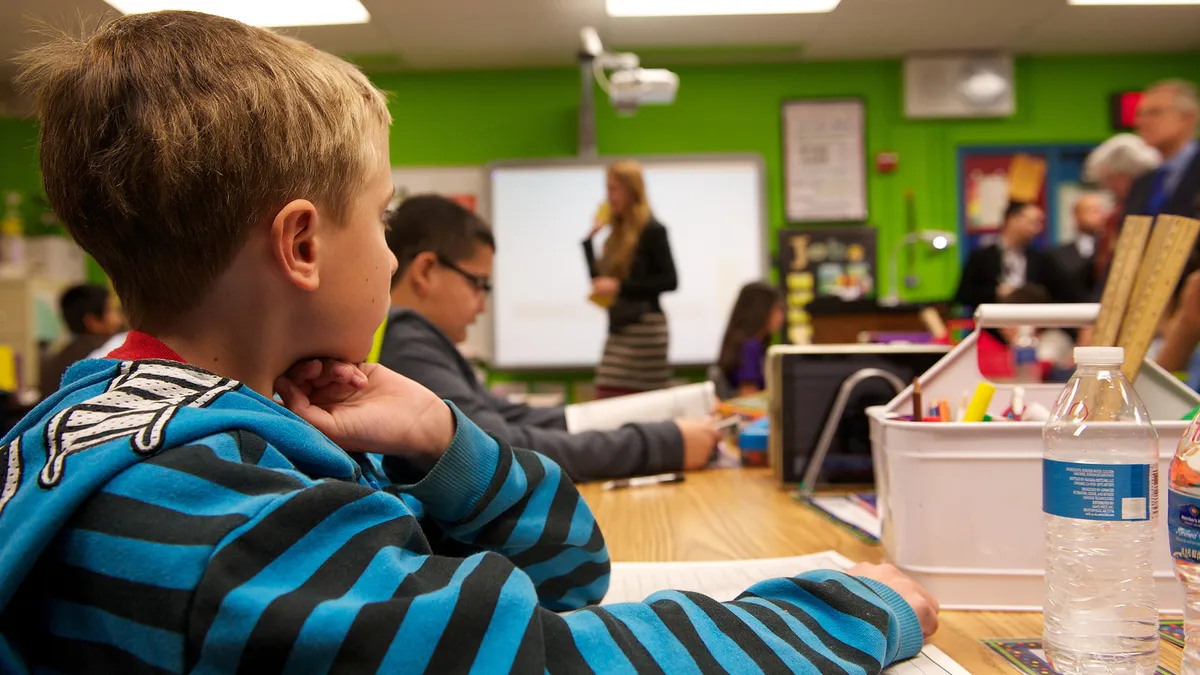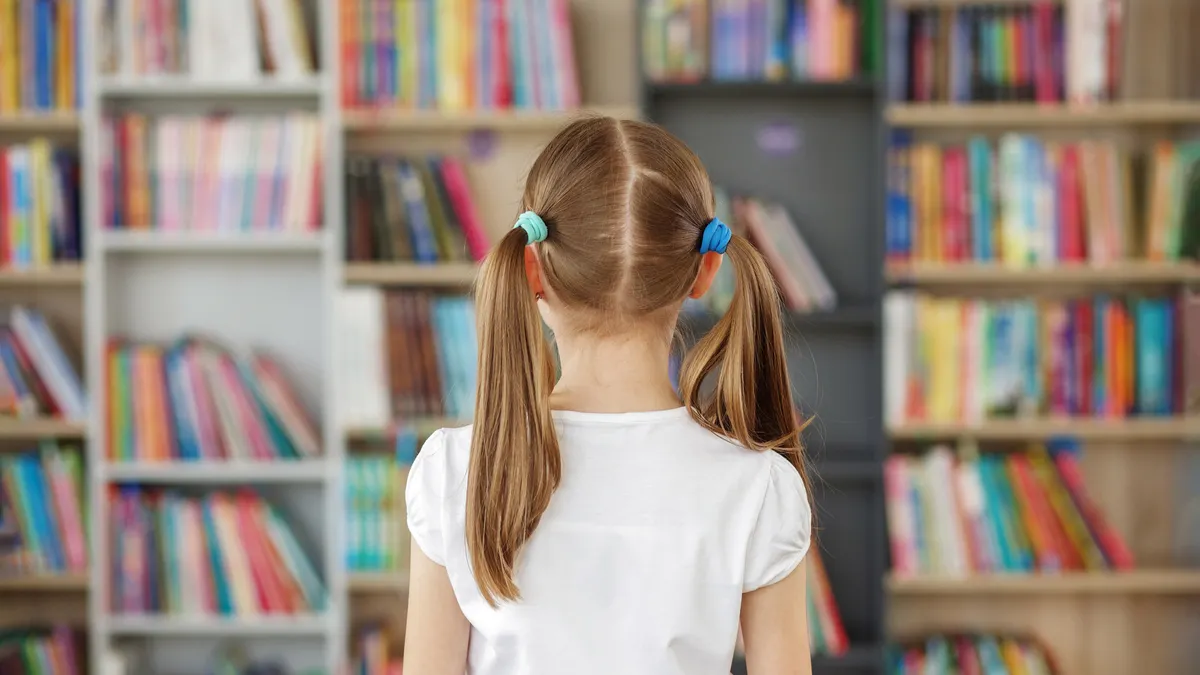A phrase often used to designate the outcome of efforts to rethink what education is in the 21st Century, "School 2.0" was at the center of discussion during a Tuesday panel at ISTE in Philadelphia. Joining moderator and Learning Revolution Project founder and director Steve Hargadon were ed tech consultant Lucy Gray of the Global Education Conference Network, Scott McLeod of Iowa's Prairie Lakes Area Education Agency, Superintendent Pamela Moran and tech chief Ira David Socol of Virginia's Albemarle County Public Schools, and retired principal Peggy George of the Arizona Technology in Education Association.
Over the course of an hour, the panelists and audience members discussed where is education headed with the influx of collaborative tech and the transition from an industrial to an information economy. Here are three key questions they tackled.
Has School 2.0 been co-opted by foundations and corporations?
A major concern in some circles with the current prevalence of ed tech has been whether companies are simply riding that wave to turn a profit with products that might not have students' best interests at heart. But also at issue is the tendency for corporations and foundations, despite their best intentions, to stall progress.
"I think the problem that happens when foundations and corporations get an idea is that the idea stops," Socol said. "It doesn't matter how good the foundation is — whether it's MacArthur or anything else — when they get an idea, their goal is to scale up the idea and repeat it, and we don't need that kind of repetition. So I think things have stalled."
What is needed, he said, is a constant play of innovation driven by teachers and students collaborating as "learning communities." As an example, he states that Albemarle County has a library deemed the best in the nation by the National Association of School Boards, but if it stays the same and students don't see it as being better the next year, it's failed. "The best idea five years ago is boring as all get out to the students in your classroom," he said.
"I don't think radical change has happened in our schools," Gray added. "I don't think enough people have embraced things. I don't think we have enough connected educators. I really don't think that there has been this fundamental shift."
Gray concluded that it's on superintendents to be the visionary leaders driving that shift to the future, and that there's too much focus on compliance instead of the big picture. "I think we need to be bolder."
Should schools have defined cultures that measure tech adoption?
“How much is this really about technology, and how much is just reminding us of things to think about in learning?” Hargadon asked the panelists. "Are there pieces here where the technology really is critical?"
McLeod reiterated that robust technology helps facilitating deeper learning, real-world authentic work, and greater student agency. "Those three things require us to rethink pretty dominant learning and teaching paradigms," McLeod said. "The technology is there to help us with those transitions. You can buy technology that will replicate the recitation and recall paradigm, which is what we have kids do about 80-85% of their school day."
For McLeod, the amount of replicated tech use right now is a product of attempts to recreate the paradigms that educators have already long bought into. “It’s not about the technology and it really needs to be how you use that technology to support learning, and it needs to be in the hands of students,” George added, mentioning also that simply replacing chalkboards with smartboards and doing the same thing does nobody any good — a point we've also heard from the U.S. Department of Education's Richard Culatta.
In Albemarle, for example, a 1:1 program leaves students in total control of what they do with their devices, and the district is building out a 4G system so kids without home connections can maintain access away from school. Kids must be able to make mistakes and figure things out, Socol said, and they must have every possible choice that can be loaded onto a device for free.
Basically, if schools are focusing too much on simply adopting tech and not whether it gives students more control in the learning experience, they're moving backwards. But, McLeod also concluded that in every other industry, technology is cracking existing business models apart pretty rapidly while education — both K-12 and higher ed — has maintained a protective bubble around itself that won't be able to last much longer.
What about standardization?
Simply put, the panelists all agreed that standardization must go for schools to move away from an industrial age model designed to prepare people for factory work and into the future.
“The reality is that our world is fueled with technology and has been for thousands of years," Moran said, making a point that all tools, from tablets to pencils, are a form of technology. The last 120 years of education designed to prepare kids for industrial labor, she said, has also gradually evolved a system where teachers have increasingly less autonomy or opportunities to fuel what they do with students based on students' interests and passions. And the last 15 years of the standardization movement and its focus on testing is "sucking the passion out of our classrooms," further removing teachers' authority to create an environment where kids can connect with things that make them want to learn.
"What difference does it make if kids cover 100% of the standards to take the test and they retain so little of it that nothing really stuck anyway, as compared to covering 40% of what we think is important to learn and how kids really learn it well," Moran said, referring to the recent documentary "Most Likely to Succeed."
Moran also said that vendors "teacher-proofing" or offering "teacher agnostic" products does no one any good. Socol asked why two teachers have to teach the same class the same way, as opposed to the way courses are taught in higher ed with students having a choice between two radically different approaches to a course from Professor A and Professor B.
Of course, the panelists conceded that much of reshaping schools away from standardization could be a hard pill for many parents to swallow, as well. “Our first responsibility is to kids, not to parents," Socol told the crowd.
"We have to say to parents that that 4.0 will not do a thing for your child 15 years from now," Socol said. "Lots of jobs no longer ask for education on their job applications because they want to know what people can do."
"Dear high-achieving parent: Your son is really good at regurgitating stuff," McLeod chimed in. "Does he know how to critically and collaboratively solve problems? Can he think his way out of a bag?"
"Here's the thing: Sure, look. We have clueless administrators, clueless policymakers, policies and regulations that work against what we're trying to do. So what. Quit whining. What are you going to do anyway?"
Would you like to see more education news like this in your inbox on a daily basis? Subscribe to our Education Dive email newsletter! You may also want to read the rest of Education Dive's ISTE coverage, gathered here in one convenient location.


















